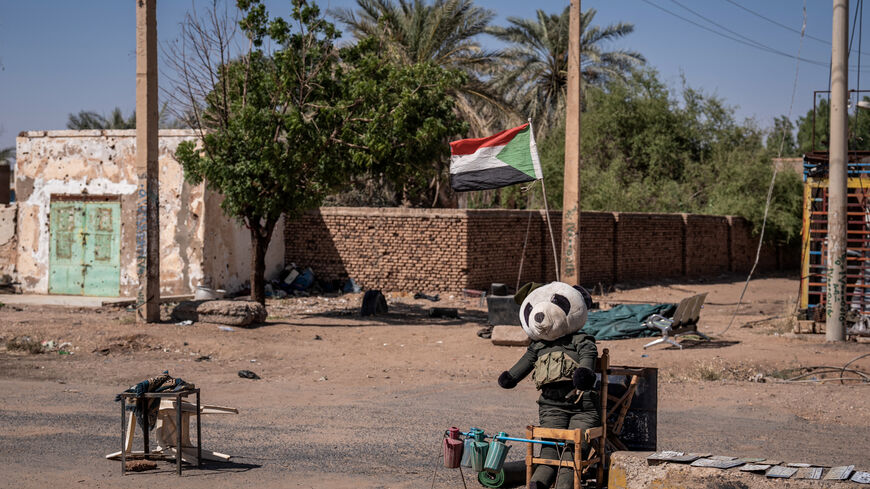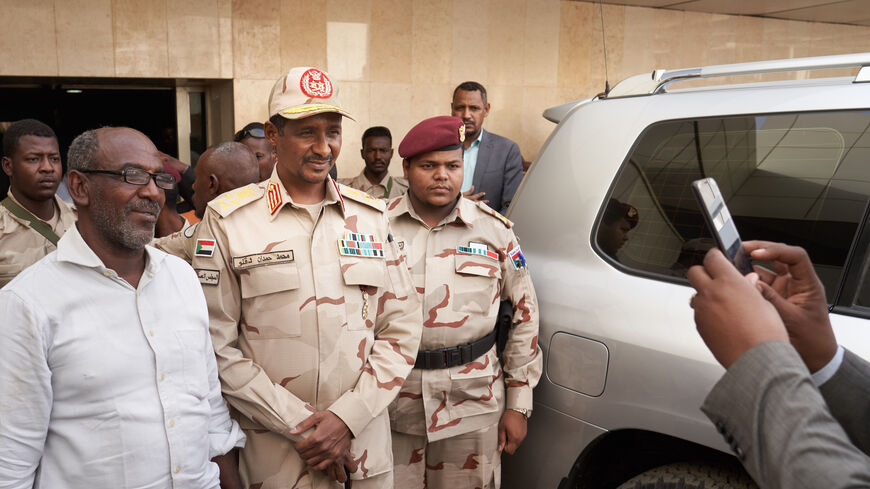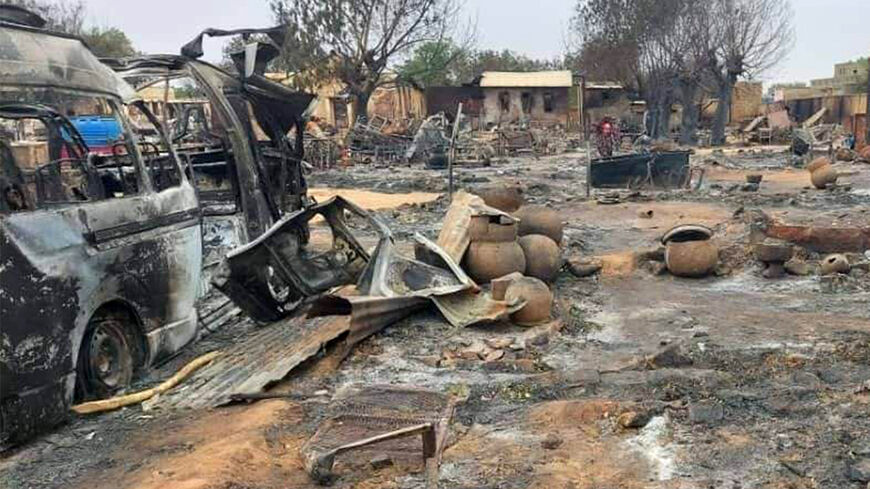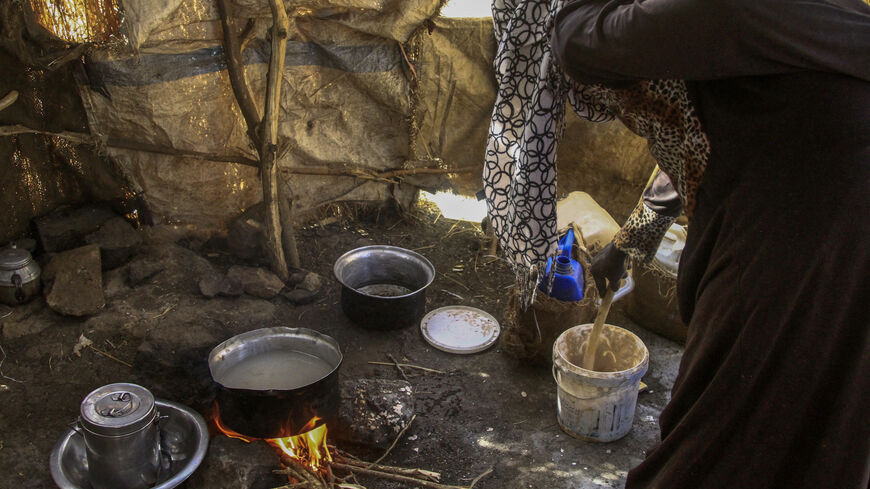One year on Sudan’s war: 14,700 killed, 8.6M displaced, 4.9M face starvation
As the war in Sudan enters its second year, the humanitarian situation is worsening by the day with no prospects of an imminent end of the hostilities.
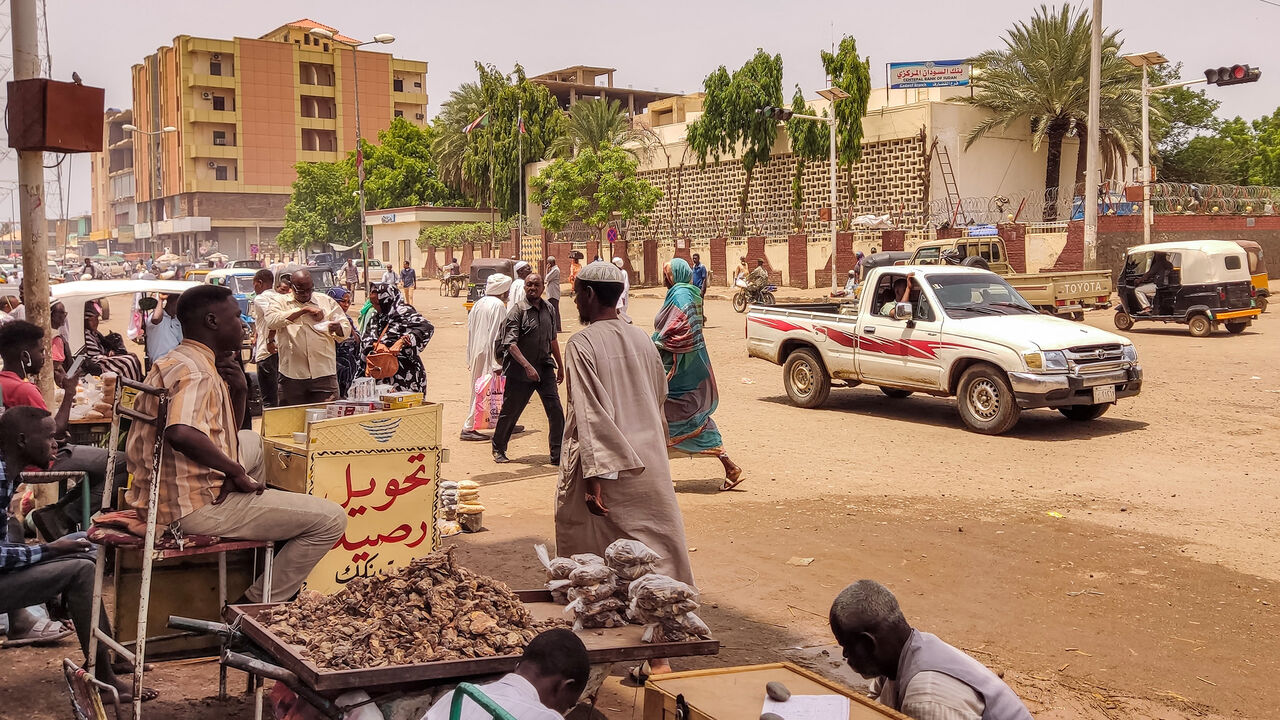
Sudan marks on Monday one year since the devastating civil conflict erupted, triggering a humanitarian crisis that United Nations agencies and rights groups say is being ignored amid the world’s attention focused on the war in the Gaza Strip and the ensuing tensions in the Middle East.
Background
On April 15, 2023, fighting over a power struggle broke out between the Sudanese army and the paramilitary Rapid Support Forces (RSF) in the capital, Khartoum.
The confrontations at the time came as the country had been embroiled in political turmoil since the ouster of longtime leader Omar al-Bashir in April 2019. A joint civilian-military transitional government that replaced Bashir’s rule collapsed after army commander Gen. Abdel Fattah al-Burhan and his then-ally Gen. Mohamed Hamdan Dagalo (known as “Hemedti”), who heads the RSF, staged a military coup against their civilian partners in power in October 2021.
After Sudanese rival forces reached an agreement in December 2022 to pave the way for a democratic transition in Sudan, a dispute emerged between Burhan and Dagalo over the integration of the RSF into the army and who will assume leadership of the military — culminating in the deadly clashes.
The fighting has spread to other parts of Sudan in the past year, with the RSF taking control of all the states in the Darfur region and parts of Khartoum as well as Gezira state, considered Sudan’s breadbasket.
Humanitarian crisis
Since the war erupted, more than 14,700 people have been killed and more than 30,000 others injured, the International Rescue Committee said on Friday.
The conflict has created one of the world’s worst displacement crises, with nearly 20,000 people forced to flee their homes on a daily basis, according to the International Organization for Migration (IOM).
In a Monday report, the IOM says more than 8.6 million people — i.e., 16% of Sudan’s estimated 49 million total population — have been displaced since April 2023, with more than 6.6 million of them being displaced within Sudan, and an estimated 2 million others fleeing to neighboring countries, mainly to Chad (36%), South Sudan (31%) and Egypt (25%).
According to the UN agency, nearly half of the total displaced are children under the age of 18.
The UN has repeatedly warned of the war’s impact on children in Sudan. “The country risks a generational catastrophe that will have grave implications for the country, the region and beyond,” UNICEF Deputy Executive Director Ted Chaiban said in a press release Sunday.
He urged immediate action to end the conflict and ensure access to life-saving aid, warning that “an even worse catastrophe is likely to impact children for many years to come.”
More than half of Sudan’s 19 million children are currently out of school, according to UNICEF, which exposes them to great risks, including military recruitment and sexual violence.
Women have also born the brunt of the conflict. UN Women called on the international community to ensure that the Sudanese conflict is not neglected.
“Sudanese women and girls are paying a heavy price for this violence,” UN Women said in a Sunday statement released on the eve of the Sudanese conflict’s one-year anniversary.
The organization warned that more than 7,000 new mothers could face death “if their nutritional and health needs remain unmet,” adding that “more than 6.7 million people are at risk of gender-based violence.”
The humanitarian situation in Sudan, which was already in dire conditions due to decades of political instability and internal conflicts, took a turn for the worse in the past year. The Sudanese rivals have been both accused of blocking aid, leaving 25 million people, including 14 million children, in need of humanitarian aid, according to the UN humanitarian agency, OCHA.
About 17.7 million people are currently facing acute food insecurity, OCHA said in a Sunday report, warning that 4.9 million people are facing starvation.
The World Food Program had warned last month that the war in Sudan “risks triggering the world’s largest hunger crisis.”
Today marks one year since the conflict in #Sudan erupted.
The ongoing war has led to unimaginable suffering and a severe humanitarian crisis.
Urgent global action is needed to alleviate the immense hardships faced by the people of Sudan.#WithSudan #SudanOneYear pic.twitter.com/mMXXTnSnEF— UN OCHA Sudan (@UNOCHA_Sudan) April 15, 2024
The disruption of the health sector in the country has led to the outbreak of communicable diseases among locals, including cholera, measles, malaria and dengue fever. Citing World Health Organization data, OCHA said in its report that 11,100 suspected cases of cholera have been reported in 11 states across the country as of April 8, with nearly 65% of the population lacking access to medical care. Between 70% and 80% of hospitals in conflict areas are currently out of order.
The war has also been marked by reports of human rights violations and abuses committed by both sides of the conflict against the civilian population.
In a February report, the Office of the United Nations High Commissioner for Human Rights said it received reports of indiscriminate attacks in densely populated areas and shelters. The UN office also documented several cases of sexual violence, including rape, gang rape and attempted rape.
On Monday, the United Kingdom announced a series of sanctions against businesses funding military groups behind the Sudanese war. The British foreign secretary said in a press release that three businesses linked to the Sudanese army and the RSF will have their assets frozen as part of the sanctions. “A year on since the outbreak of fighting, we continue to see appalling atrocities against civilians, unacceptable restrictions on humanitarian access and an utter disregard for civilian life,” Foreign Secretary David Cameron said in the press release.
"The businesses that support the warring parties must be held to account, alongside those responsible for human rights abuses,” he added. “The world must not forget about Sudan. We urgently need to end the violence."
Amid increasing calls to address the deteriorating humanitarian conditions in Sudan, France is hosting on Monday an international conference to address the situation in the country. A ministerial-level meeting, jointly chaired by France, Germany and the European Union, will convene in Paris to discuss Sudan’s political track, followed by a humanitarian conference.
Diplomatic efforts to end war
Despite numerous mediation attempts by regional and international actors to end the war amid growing concerns of a spillover in the already volatile Horn of African region, Sudan’s warring sides remain locked in the bloody conflict.
Saudi Arabia and the United States brokered talks last May between the rival Sudanese parties in Jeddah in a bid to resolve the conflict. But the talks broke down one month later, as the army accused the RSF of lack of commitment. The last round of talks was held last December.
In February, the United States appointed veteran diplomat Tom Perriello as its new special envoy for Sudan, as part of Washington’s efforts to put an end to the hostilities and achieve peace and security for the Sudanese people.
In a Sunday interview with the local Sudan Tribune news outlet, Perriello reiterated his support for the Jeddah talks as the only solution to reach a sustainable peace agreement.
“The US supports the resumption of negotiations at the Jeddah platform as soon as possible. We are working with the various parties involved to finalize the date for the resumption of talks,” he told the Sudan Tribune.
Last month, Perriello had told reporters that the talks in the Saudi city could resume April 18, but no date has been confirmed so far.
In parallel, the Intergovernmental Authority on Development (IGAD), an East African bloc of nations including Sudan, Kenya, Ethiopia, Uganda, Somalia and Djibouti, repeatedly attempted to host direct talks between the Sudanese warring generals, to no avail.
In January, Sudan suspended its involvement in IGAD’s mediation efforts. The Foreign Ministry, which is aligned with the Sudanese army, said at the time the decision came after IGAD invited Dagalo to a planned Jan. 18 meeting in Kampala, Uganda, a move it described as a violation of Sudan’s sovereignty.
The African Union, for its part, established in January the AU High-Level Panel on the Resolution of the Conflict in Sudan with the aim to facilitate dialogue between all of Sudan’s warring parties. During a meeting with a delegation from the AU panel in Khartoum in March, Burhan said he would accept the regional body’s mediation efforts if it reinstates Sudan’s AU membership, which was suspended following the October 2021 military takeover.
Meanwhile, Sudan’s neighbors also sought a mediating role as they fear a spillover of the conflict into their territories. Egypt, which is close to the Sudanese army and its general, hosted in July 2023 a summit of heads of state from countries neighboring Sudan to discuss ways to end the conflict.
For its part, Libya has repeatedly expressed its readiness to mediate a solution to the crisis over the past months. Most recently in February, Abdul Hamid Dbeibah, prime minister of Libya’s internationally recognized government, hosted in Tripoli in two separate meetings Burhan and Dagalo.

